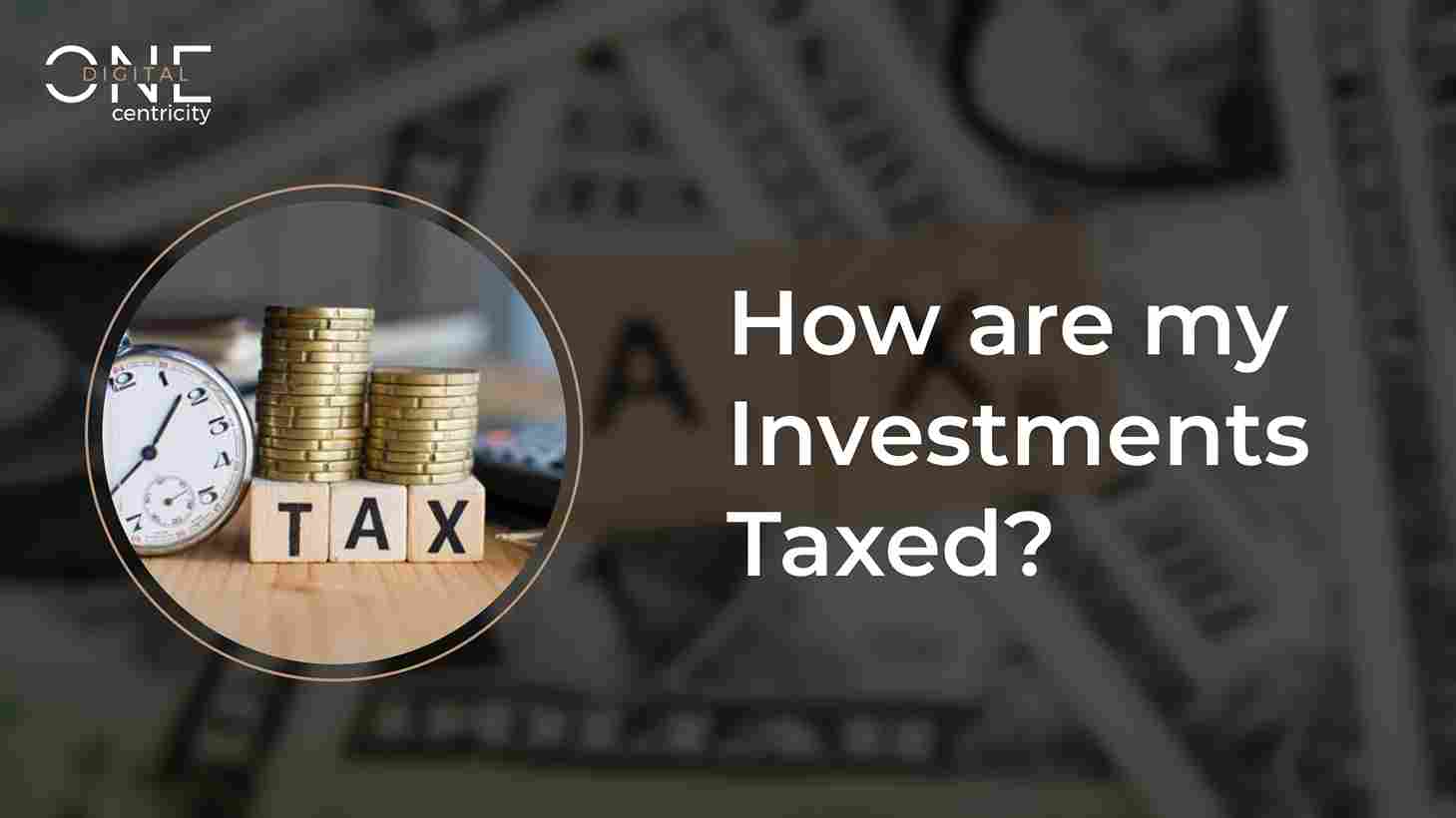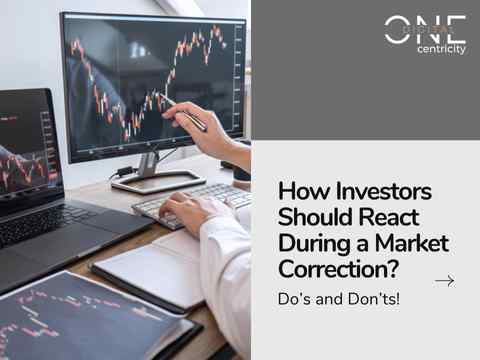How are my investments taxed?
3rd November 2023 | Author : Centricity

It is well known that the financial sector offers a wide range of financial products. Whether you need mutual funds, PMS, or AIFs, we have them all. As Indian citizens, tax plays a crucial role both for salaried and self-employed individuals.
To help you save maximum tax, the Income Tax Department provides multiple options for tax deductions. From Section 80C (deduction on investments) to Section 80D (health insurance) to Section 80CCD, etc.
Investing can be a great way to grow your assets, but what do you need to know when it comes to filing your taxes? Taxes are affected by your investments at two different times.
- First, when you receive income from your investments.
- Second, when you sell your investments for a gain or loss.
To help you understand better how your investments are being taxed, in this article, we’ll be covering the following financial products:
- Mutual Funds
- PMS (Portfolio Management Services)
- AIFs (Alternate Investment Funds)
MUTUAL FUNDS:
The taxation of mutual funds in India varies based on the type of mutual fund, the holding period, and the nature of income. - Equity Mutual Funds are those funds that primarily invest in equities or stocks. They are subject to the following tax rules: a. Short-term capital gains (STCG): If you sell your equity mutual fund units within one year of purchase, the gains are considered short-term and are taxed at a flat rate of 15%. b. Long-term capital gains (LTCG): If you hold your equity mutual fund units for more than one year, gains up to Rs 1 lakh are tax-exempt. Gains exceeding Rs 1 lakh are taxed at 10% without indexation benefits.
Debt Mutual Funds primarily invest in fixed-income securities like bonds and debentures. Taxation of debt mutual funds depends on the holding period:
a. Short-term capital gains (STCG): If you redeem debt mutual fund units within three years of purchase, the gains are added to your taxable income and taxed at your applicable income tax slab rate.
b. Long-term capital gains (LTCG): If you hold debt mutual fund units for more than three years, you can avail the benefit of indexation and pay tax at a flat rate of 20% with indexation or 10% without indexation, whichever is lower.

Portfolio Management Service (PMS)
PMS is a systematic approach to maximizing returns while minimizing the risk of your investments by actively managing the portfolio that can potentially be customized to meet specific investment objectives. The minimum investment for PMS starts at Rs. 50 lakh.
PMS offers various benefits, like:
- Professional Management
- Diversification of Risk
- Transparency
- Scope of higher adjusted return
Investments held under a PMS are held directly in the investor's name, and the tax treatment is determined by the securities underlying the investment.
The most popular PMS among investors is equity stock PMS. These PMS are taxed as direct equity stocks.

Alternate Investment Funds (AIFs)
In India, Alternative Investment Funds (AIFs) are a relatively new investment vehicle with specific tax implications. For high-net-worth individuals (HNIs), it has been a lucrative option. According to the SEBI (Alternate Investment Fund) Regulation, 2012, AIFs are divided into three categories: Category I, Category II, and Category III.
Here, you have to decide which category of AIF to invest in depending on your investment objectives. The income tax implication on AIFs also plays an important role in deciding which category of AIF to invest in. Each category of AIF is a different investment vehicle; therefore, it is also taxed differently.
Category I & II
With the Finance Act of 2015, a special taxation regime was introduced that grants a pass-through to Category I and Category II AIFs. In a pass-through fund, the income generated by the fund will be taxed at the investor's level rather than at the fund's level. In Category I and II AIFs, the investor will be responsible for paying tax on the investment income.
Under AIF Categories I and II, business revenue is not subject to taxation and is instead subject to fund taxation. While short-term capital gains are taxed at a rate of 15%, long-term capital gains are taxed at a rate of 20% plus indexation benefits. Surcharges and cess fees are additionally applied above the tax rates in addition to the tax rates themselves.
Category III
This means that the AIF is responsible for taxing the revenue from investments. Category II AIFs are not covered under the pass-through tax framework. Owing to this discrepancy, Category III AIF's income is subject to AIF taxation. The AIF bears the tax on all four categories of income but at varying rates.

Disclaimer: The above information should not be relied upon for personal or financial decisions, and you should consult an appropriate financial professional for specific advice. The information presented under our newsletter and blogs is solely for informational purpose

Arbitrage Funds: A Safe Haven or a Strategic Investment?
26th December 2024


Why Index Funds Are Gaining Popularity in India?
5th September 2024

How to Avoid Making Poor Investment Decisions?
16th August 2024


